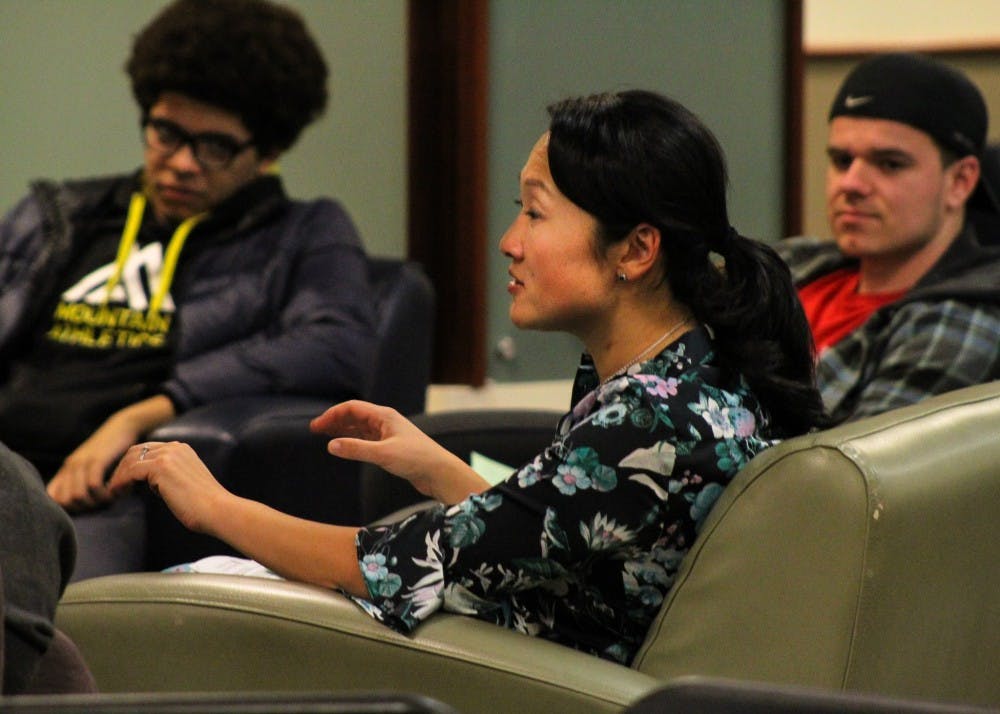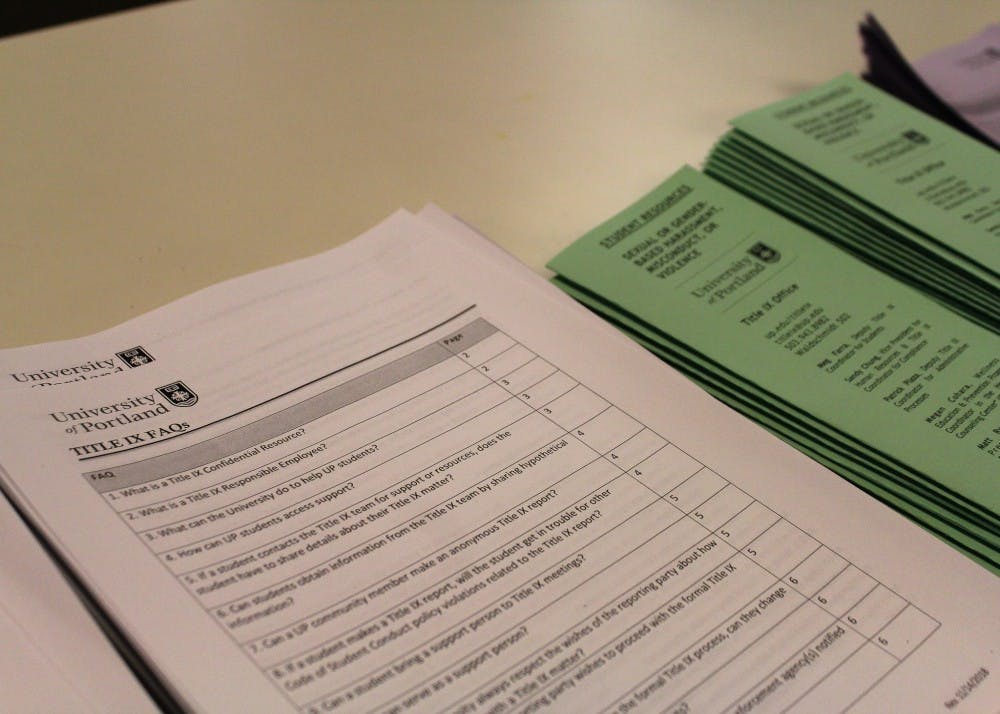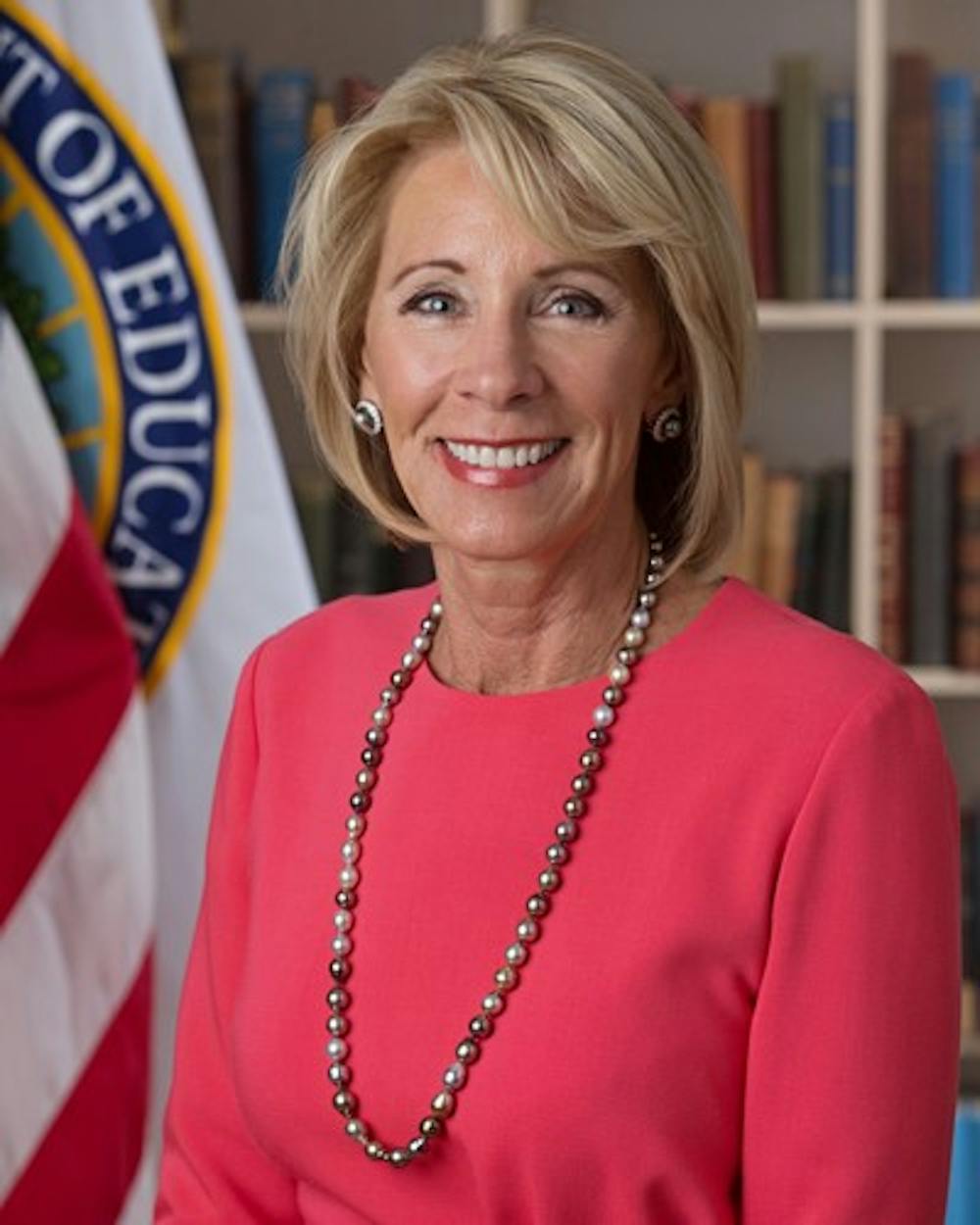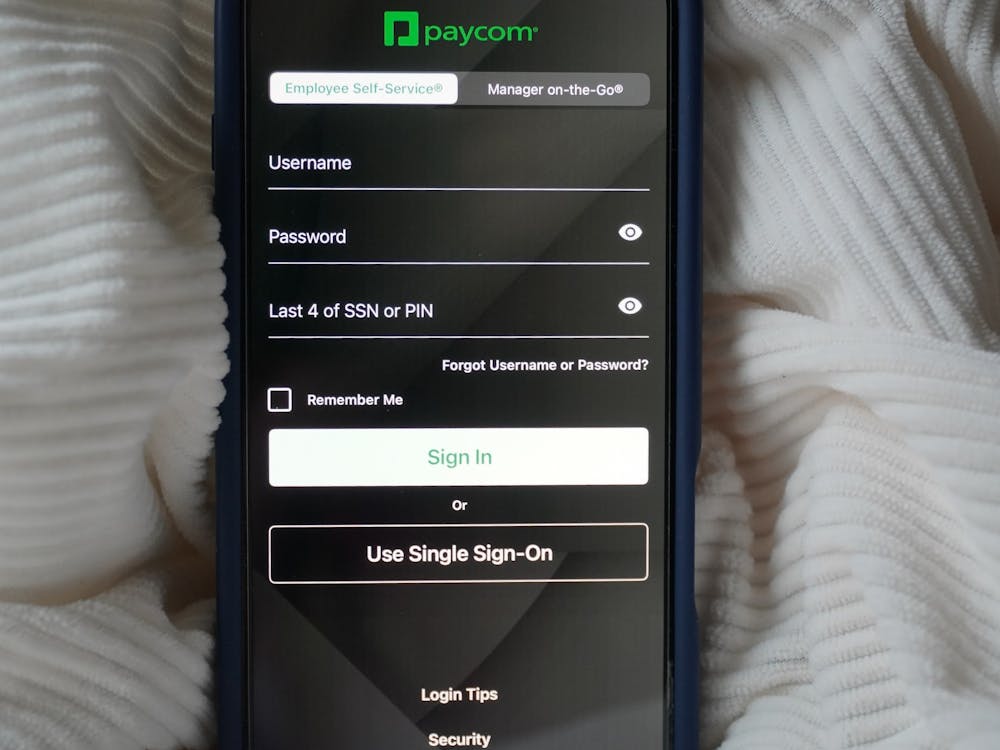Colleges and universities across the country, including University of Portland, are grappling with the potential impacts of new federal policies on sexual assault, misconduct and harassment proposed by U.S. Secretary of Education Betsy DeVos.
In general, the proposals made public on Nov. 16 strengthen protections for the accused. Specific changes include: altering the definition of sexual harassment to be more narrow, limiting the types of reports investigated, allowing a stricter standard of proof or evidence in cases and permitting cross-examination of accusers.
According to Title IX Coordinator for Education, Matt Rygg, current student conduct hearing policies at UP “do not allow the responding or reporting parties to ask each other questions in the hearing process.” DeVos’ proposal would require universities to allow accused students to directly question the person who made the report.
The new policies have several implications for college campuses. Fewer allegations would be considered sexual harassment under the new definition, and schools would not be required to investigate cases that occurred off campus or were not reported properly. But universities would still have the option to continue to use a lower standard of proof known as “preponderance of evidence.”
In response to the proposed changes, Sandy Chung, Title IX coordinator for compliance, sent an email to students, faculty and staff on behalf of the the University of Portland Title IX Office.
“Please know that the University of Portland remains committed to policies and processes that support equal access to education, regardless of sex, gender, or other protected status,” the email said.

The Title IX Office has invited anyone in the campus community to email questions or concerns to titleix@up.edu. People can also submit an anonymous form through a link.
Now that DeVos has given her proposal, the changes need to go through a public review and comment process before the policies are fully implemented.
Students Against Sexual Assault co-president, senior Emma Covert, said that she worries the proposal’s higher standard of evidence would place too high a burden on survivors, who already have a hard time providing enough evidence under current standards. The new rules, Covert said, could deter students from reporting incidents of sexual assault and harassment.
“Keep an eye on (the changes), but also know that we’re not going to lower our standards,” Covert said.
At this point, Covert said, the university is doing a good job of protecting students. She doesn’t believe that the administration will make any non-required changes to regulations.
To prepare for the possible changes, the Title IX Office will review how UP’s policies regarding sexual assault and harassment may be influenced. Students are also encouraged to reach out to the Title IX Office with any concerns about the proposed alterations.
Amid all this change, the Title IX Office continues to increase outreach events and programs for students to ask questions and learn more about current policies. On Wednesday, Nov. 14, students, faculty and staff gathered in the Fields and Schoenfeldt basement as part of the effort to continue educating the UP community on issues relating to sexual assault and harassment.
Though the group of 10 attendees only included two students, the group discussed the definition of consent and received examples. They also learned about the Title IX process and new projects, such as a confidential advocate program and efforts to expand the number of confidential resources for students among faculty and staff.
The low turnout could have been related to numerous other events occurring on campus, like the Opus Prize events. But despite the lack of students, an educational conversation continued among the group about Title IX policies and the increased efforts for awareness.
Confidential Advocate Program
According to Rygg, the confidential advocate program was inspired by the efforts of Covert and the other SASA co-president, senior Shelby Gavigan.
“Through our Title IX training, Sandy and I have heard a lot about the advocate models,” Rygg said. “But I think SASA has really helped us think about this in terms of a priority and done a lot of the background work.”
The proposed program would bring an outside organization to campus to help students understand their options in the Title IX process and support them through filing a report if the student wishes. The group would act as a non-University affiliated advocate whether or not the student decides to file a report with Title IX. The program Covert envisions for UP is based on similar ones at Whitman College, University of Oregon and Willamette University.
Many organizations are being considered right now, but Covert said Call to Safety and the Sexual Assault Resource Center are both potential partners because of the resources they offer in counseling and education. Covert expects a program may be in place by fall 2019, but there are still factors, such as selecting a partner organization and deciding on financing options, to be worked out.

Expanded Confidential Resources
The Title IX Office is working to train more faculty and staff as confidential advocates. According to Sandy Chung, Title IX coordinator for compliance, the process is ongoing and needs to find a way to train those who volunteer.
“Ultimately the reason that we didn’t go forward with expanding (over the summer) was we thought it wouldn’t be fair for us to move forward unilaterally without involving the UP community,” Chung said.
When asked how they felt about expanding confidential resources beyond the Health and Counseling Center and Campus Ministry, one student commented that they would feel more comfortable speaking with a trained student because a peer might be able to understand and empathize better.
Chung responded that the Title IX Office would consider this, but would need to consider the possibility that students could face second-hand trauma from being a resource. At this point in the process, Chung would like to begin by taking applications from faculty and staff to be confidential resources.

Consent Education
The Title IX Office uses the definition of consent from the student handbook. It says “consent means informed, freely, and voluntarily given mutual agreement understood by both parties and communicated by clearly understandable words or actions, to participate in each form of sexual activity”. Wednesday night, Chung explained that the essential elements of affirmative consent are that it is informed and freely given.
The Title IX office has been holding consent education events with residence halls, UP athletics teams and other student groups all semester. This year, according to Rygg, there’s a new focus on understanding the difference between intoxication and incapacitation.
According to Chung, incapacitation is the point at which alcohol or drug consumption has removed an individual’s ability to give informed consent. It looks different for everyone. The standard used by Title IX, and the student conduct process, is whether or not a reasonable person could see an individual is unable to give consent. Chung investigates reports with a team made up of members of Title IX and Human Resources. If the team decides that there is a greater than 50% chance that a student was unable to give consent, known as a preponderance of evidence, the case may go through the student conduct process.
This all depends on if the person who reports wants to move forward with the process, however. According to Rygg, if a report indicates there may be an imminent threat to a member of the UP community, the University has a legal obligation to investigate even if the student who reports requests otherwise. If no such threat is perceived to exist, a student may request their report be handled informally through processes such as mediation.

What Next?
At Wednesday’s event, Chung and Rygg handed out pamphlets with answers to common questions they had received from the UP community. One of the questions asked if the Office of Title IX would get a full-time coordinator.
“We love the current team approach to Title IX because it helps lessen burnout,” the pamphlet read. “The team approach means that there is always someone available in the Title IX Office to support students.”
But Covert said she feels a full-time Title IX coordinator is still necessary.
“Sometimes I think (the Title IX Office tries) to over-emphasize what they’re working on to compensate for the fact that we’re still not perfect,” Covert said.
She said each time the question of a full-time coordinator has been brought up the Title IX team has replied by focusing on what they've already done with adding part-time coordinators and deputies.
“There’s a lot of different people working on these different things,” Covert said. “... all the people on the Title IX committee have full-time jobs outside of their Title IX role, so to have someone who's full-time job it is to be focusing on our Title IX and our gender-based and sexual violence policies would make everything move more smoothly and more quickly.”
To help make these changes happen, Covert said she encourages students to continue asking questions to the Title IX team and come to events like the one on Wednesday more often.
“It’s hard to explain how much this needs to happen on our campus,” Covert said. “For instance, when (SASA) is trying to explain to the Title IX advisory committee that we need a confidential advocate and that students want it, we’re trying to convince them to put money into it. And they’re only going to put money into it if they know it’s really supported by the students.”
Sam Cushing is a reporter for The Beacon. He can be reached at cushing20@up.edu.








